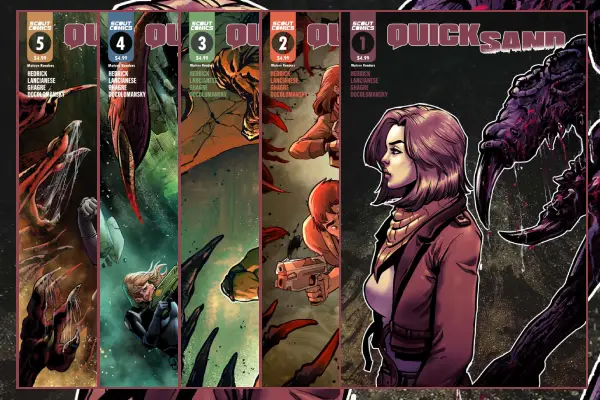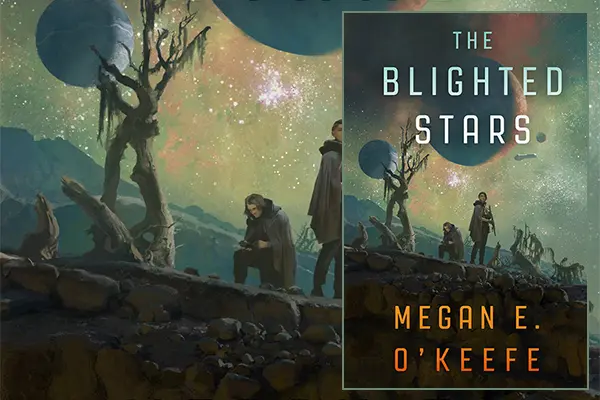Shards of Earth Review
6th May 2021
I have been on a bit of a Tchaikovsky readathon over the past 6 months, discovering how much I enjoy his work. Cage of Souls has been a particular stand out book. So, a new book set in space eighty years after Earth was destroyed by a moon-sized enemy? Yeah, that sounds like a book I'd be into.
The moon-sized enemy, the Architects, killed millions as humans escaped Earth. To combat the Architects, humanity created some new enhanced humans such as Idris, who can communicate mind-to-mind with the Architects, although with some difficulty given the size differences. The Architects then simply disappeared leaving these new enhanced humans obsolete and not much liked by regular, unaltered humans. Eighty years on, Idris and his crew find a ship that has only recently been destroyed, and it seems clear that it was destroyed by an Architect. From here, the crew are hunted by various factions for various reasons that all come down to this destroyed ship, what it contained and what it means.

The scale of the book is immense – but then, space is larger than we can really comprehend, but there are more than enough elements to the story to make it feel as large as it is. The Architects are massive, unspace that is used to travel large distances (think wormholes but more of a void that has a presence that haunts anyone that dares cross through it), ancient civilisations and artefacts that can scare off an Architect. The universe for Shards of Earth is as big as you would expect for a space story and yet there are also moments where despite the enormity of everything, there are also moments of how small some things really are. Spaceships that house a handful of people, over-crowded docking bays, overpopulated planets. It all works as a nice contrast between the enormity of their life and how little space you actually have to live in.
The story seems more plot-based than character-based, which for a first instalment isn't a bad thing. There is an awful lot to set up and unlike with books set on one world, there's a whole universe to set up here. There isn't just a future where Earth has been lost, there's a new breed of humanity, aliens, colonies, worlds, space stations. It's a lot, but tied in with the main characters it doesn't feel overbearing. It also allows the next book in the series to focus on other things or be more character-based as we already know about this future universe.
The plot will get you hooked though. It was a bit slow at first, with part one leaving me wondering whether I'd actually be surprised and not like the book. Sticking with it to the end is definitely worth it though as once you start getting into it and understanding how things are and more of what's happening, it grips you and leaves you wanting more. You won't get everything you want out of the book, but there needs to be some intrigue for the second so it's fine. Having some questions when you've finished will only be disappointing if you never get answers in subsequent books.
Whilst the scale of the book is impressive, it's also a slight downfall to the book. I love the idea of the Architects as they would be terrifying. Their scale though bothers me. Imagining space can be hard enough as we are nothing compared to the enormity of it. Picturing a world-destroyer the size of a moon I can do. Picturing a 5-person spacecraft and other spaceships going against a moon-sized world-destroyer though? Was too much for my mind. I could never get the scales right in my head because it's all too big to imagine when you're also comparing it to what is fighting against it. It might not be a problem for some but I just couldn't wrap my head around it well enough.
SHARDS OF EARTH is beautifully written, finding a neat balance between plot and characters in a story that does lean on plot more than the characters. The main characters all get their moments in the book, and of course, it wouldn't be an Adrian Tchaikovsky novel without a character that is both weird and wonderful – there are actual crab people and I need more of them! Despite struggling with the enormity of parts, it is an enjoyable read and leaves me eagerly waiting for the next instalment so that I can find out just what the hell is going on with the Architects.
Rating 4/5







